My 12 Parenting Lessons: Candice Brathwaite
Prepare For Every Eventuality
My husband Bodé and I have three children between us – he has an older daughter from a previous relationship who doesn’t live with us, and then there’s eight-year-old Esme and four-year-old RJ. Looking back, I wish I’d stayed off internet forums when I was pregnant. All they told you was how to have the most natural, blissful birth. But the reality is you have to prepare yourself for any eventuality. There are also several economic and demographic barriers that prevent certain women from having the perfect experience. I was so against having a C-section, for example – I hated the idea of surgery – but I know that if I’d allowed myself to investigate it more, I’d have been more prepared for what happened and the consequences that followed.
Think About The Long-Term Consequences
If you ask me, our society can be guilty of over-selling motherhood. There’s still a lot of pressure to get married and have children, but when I chat to my single friends, I’m always very intent on making sure it’s what they really want. I’m still dealing with physical issues in my womb space that are a result of having children – problems women just don’t talk about. That’s why it’s so important to look at motherhood through a long-term lens – it’s so rewarding, but it’s not always easy. I don’t find it helpful to talk about motherhood with a judgemental tone. Everyone’s experience is different and women decide to do different things for different reasons. When I fell ill after my C-section, for example, and ended up in intensive care, the decision to breastfeed was pretty much taken out of my hands. Some women might have something to say about that, and there’s a lot of judgement we project onto women for not doing things a certain way. But, sometimes, it’s completely out of our control.
Don’t Conform To Traditional Parenting Roles…
I’m often asked how my husband’s parenting style differs or is similar to my own, and I’d say it’s ever evolving. He worked away a lot when Esme was born – so much so that she would cry every time I left the house until she was about six. Then, Bodé quit his job in the middle of the pandemic and was far more present. It really shifted the dynamic in our house, and I’d say he’s now the more maternal one. The kids often go to him first with issues – probably a more common occurrence for mothers – and it’s me who goes out to work. It’s been a journey for our own relationship, and it’ll probably change again. Flexibility is important when it comes to establishing parenting roles – that way you can make sure you’re doing what’s best for everyone involved.
… Or Feel You Have To Follow Parenting ‘Rules’
So many people want to give you their opinion on how to be a better parent. But at the end of the day, only you know what works for your children. Co-sleeping, for example – that’s a big topic among parents. We didn’t do it and while RJ slept through the night quite comfortably for a long time, he now (age four) gets into my bed every night. My husband and I often wonder why we did all that work! Having routines is great because they help you carve out time for yourself but they’re not always easy to stick to – especially when you travel. You have to weigh up the difference choices based on what’s best for you and your children. No other parent can tell you what to do.
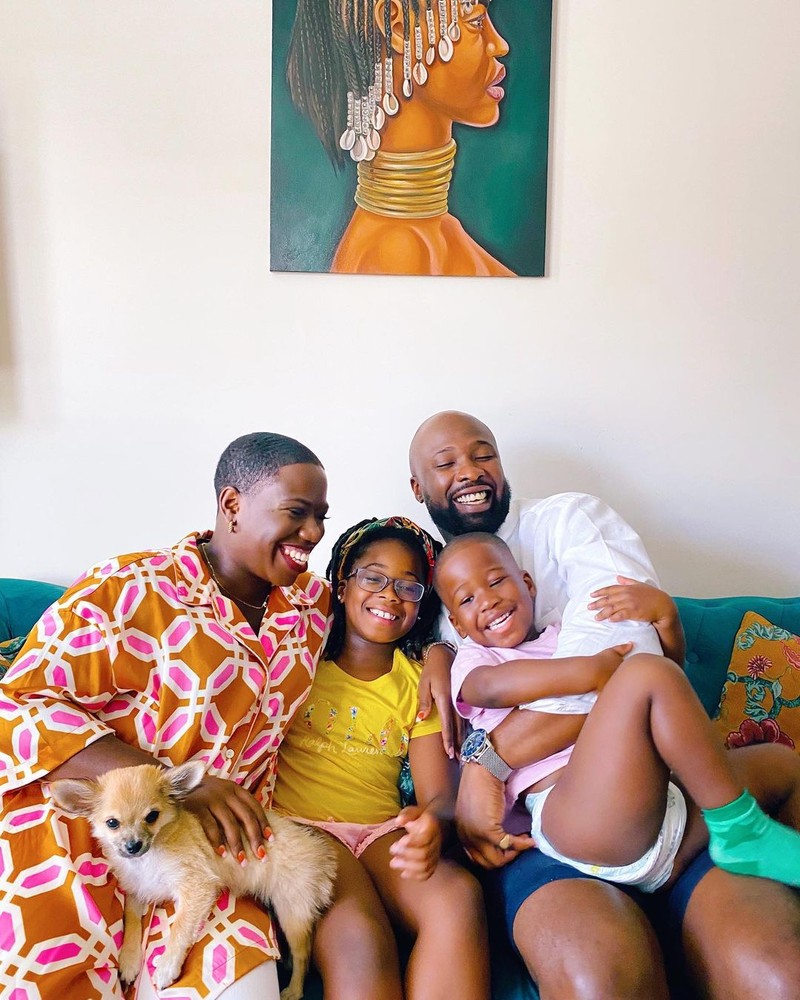

Remember Honesty Is Always The Best Policy
I’ve never shied away from talking to my children about big topics – no matter how young they are. When Esme found my Tampax aged four, we had a proper conversation about periods. She might not have understood everything I said, but I don’t want her to be afraid to address the issue when the time comes. But it is important to talk to children in an age-appropriate way. Thankfully, there are so many resources on the Internet dedicated to breaking these subjects down for little ones to understand – Esme and I have looked at online sex education resources together, for example, and we’ve both found it really helpful.
Tread The Line Between Right Vs. Wrong Carefully
My husband and I are very aligned when it comes to talking to the children about right and wrong. Neither of us want the kids to pick something up from outside our home and take it as gospel without talking to us about it first. We always say to them, “This is what happens, and this is why people do it. If you’re thinking of doing the same thing, please tell us first. We might not be able to convince you to do it otherwise, but we could at least help you to look at it differently.” It’s also why we ask them how they’re feeling – to make sure they’re in a good emotional state. It might sound heavy, but children face quite serious issues from a young age these days. Esme had her first experience with racism when she was four, for example, when a girl at school refused to play with her based on the colour of her skin. When she came home wanting to talk about it, it proved to me that it’s never too soon to have these conversations.
Find A Life That Makes Sense To You
These days, I run my own business and spend my time writing books. Quitting the traditional 9am-5pm ultimately gave me more balance in my life. My personality is very much ‘all or nothing’ so for me, I found trying to be in two places at once impossible and draining. Any working women out there will be familiar with the 4:55pm panic that sets in when you know you have to pick your baby up from childcare – I just didn’t want to feel that way forever. I knew I needed to be my own boss. The way my husband and I operate now is very flexible – sometimes I’m on the road promoting a book, sometimes he is. We’ve really had to free ourselves of those typical ‘breadwinner’ ideals to find what works best for our family.
Sort Out Your Financial Priorities
For someone as fashion obsessed as myself, my daughter is the polar opposite. She finds my clothes and accessories vulgar. She’s always telling me to get a grip when I buy a new dress – thank God, really, because I don’t see the point in spending a lot on children’s clothes. They grow so quickly – and my son uses the front of his shoe as a break on his scooter! I’m always swapping children’s clothes with my friends to make them go further. For me, two bigger financial priorities are education and holidays. My own grandparents were always keen for me to travel because they saw it as another form of education – changing a child’s space and environment broadens their mind. You can always do things closer to home, too. Every month, Esme and I have a standing date to go to the theatre. It’s our thing – recently we went to see Wicked and it blew her mind. I’m planning to take her to the ballet soon, too – I’d rather spend money doing something like that than make sure she has the latest trainers.
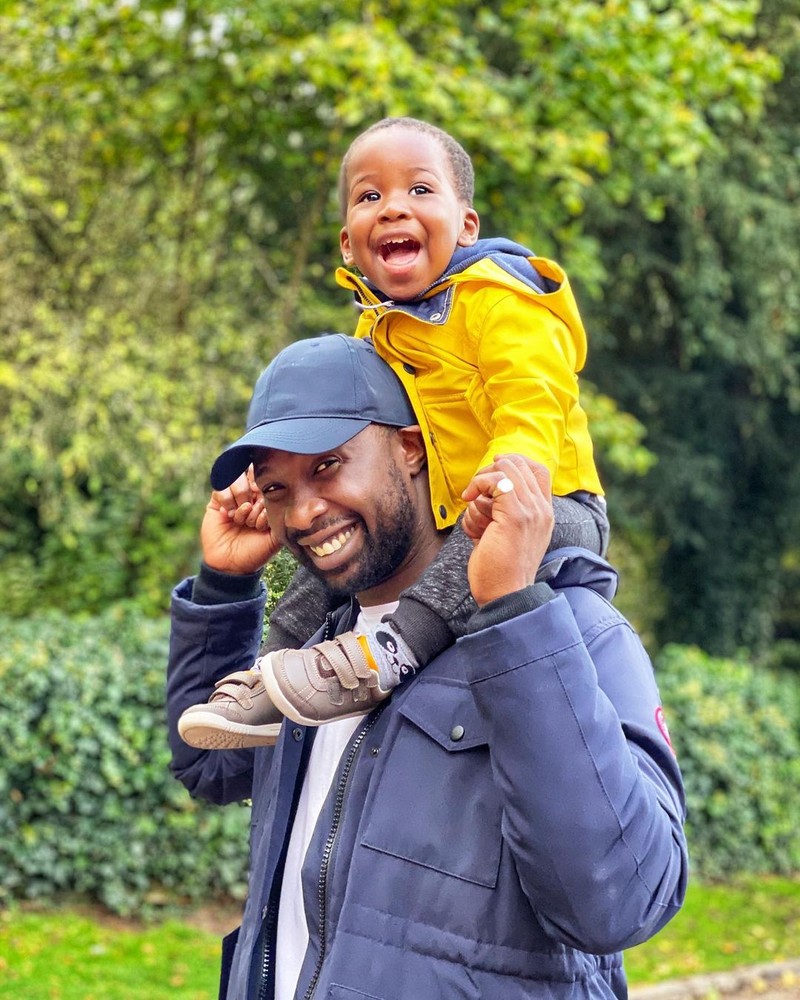
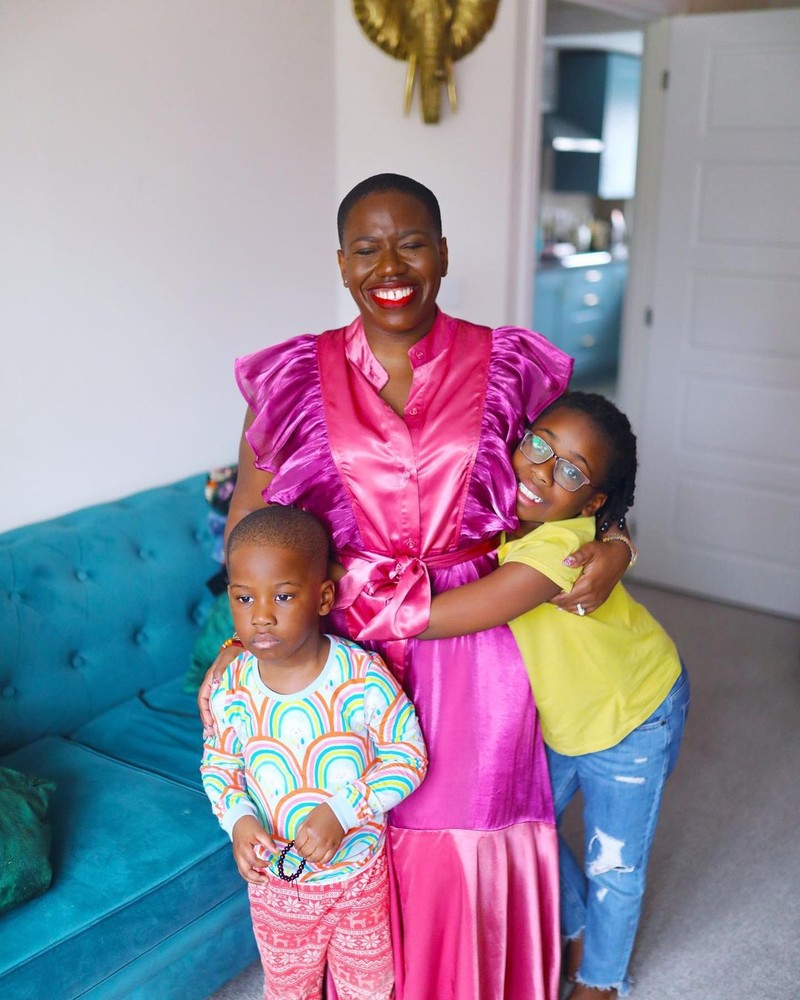
Establish Your Own Definition Of Motherhood
My experience of motherhood has been particularly unique because I’m also a stepmother. My step-parenting style is quite hands-off – which is probably the result of having my own stepmother who sadly fell into that familiar Disney villain trope. But it’s made me acutely aware of not overstepping other people’s boundaries and ensuring my husband’s daughter spends plenty of time with him alone. That said, I’m always willing to be a listening ear and friend – I understand that sometimes it’s easier for her to come to me with something than her parents.
Lead By Example
Some women say it works best for them to compartmentalise work and being a mother. But for me, it’s been more important to include Esme in different work events – whether it’s publishing meetings or shoots – so she understands what a Black woman in control of her own time looks like. I know for a fact she wouldn’t see it many other places, and I love that she’s going to assume it’s normal to be a Sunday Times bestseller or on television. I’m hoping that by making my work visible to her, she can learn to believe in herself more. I know it’s the kind of education and experience she won’t get in school.
Understand That Some Children Are Old Souls
While emotional intelligence is something I’m keen to cultivate in my children, you can sometimes end up creating a rod for your own back. Esme is eight going on 18 and she really does have an answer for everything. I have to take it, because it’s the way I’ve encouraged her to be – to voice her opinion. I don’t carve out a specific time to chat to her each day, but I know her moods so well that if she comes home in a bit of a slump, I give it a bit of time to let her open up. Making her a snack works wonders – there’s something really convivial about sharing food that helps people feel better about sharing their feelings.
Accept Perfection Is A Lie
I know I said quitting my 9-5 gave me more balance – and it did. But ultimately, this idea of perfection – where everything just ticks along – is a fallacy. It only gives rise to guilt and stops women from taking time away from their children, which is actually so important. If children cry when you try to leave the house, think of it this way: do you stay to stop them crying now, when they’re fine and with a responsible adult? Or do you cry two weeks later because you haven’t had a break? Rushing back to work is something many mothers struggle with – but you’re not alone. Statistics associated with the campaign I’m working on show nearly 40% of mothers feel guilty about going back to work. For me, it’s been about accepting that most days, something’s got to give. Now, I look at my diary in advance and identify which plates are bound to fall. Sometimes, work and life just collide. What’s that mantra? If they’re fed, in bed and not dead, then you’ve nailed it.
Shop Candice's Books Below...
Candice Brathwaite is supporting Maltesers' social media campaign, #TheMaternityReturn, which highlights the importance of support when returning to work after maternity leave. Campaign research shows four in ten mums felt they had to prove themselves to their colleagues and bosses when they returned to work, with 34% worried they were no longer good enough. You can follow @CandiceBrathwaite on Instagram.
DISCLAIMER: We endeavour to always credit the correct original source of every image we use. If you think a credit may be incorrect, please contact us at info@sheerluxe.com.
All products on this page have been selected by our editorial team, however we may make commission on some products.

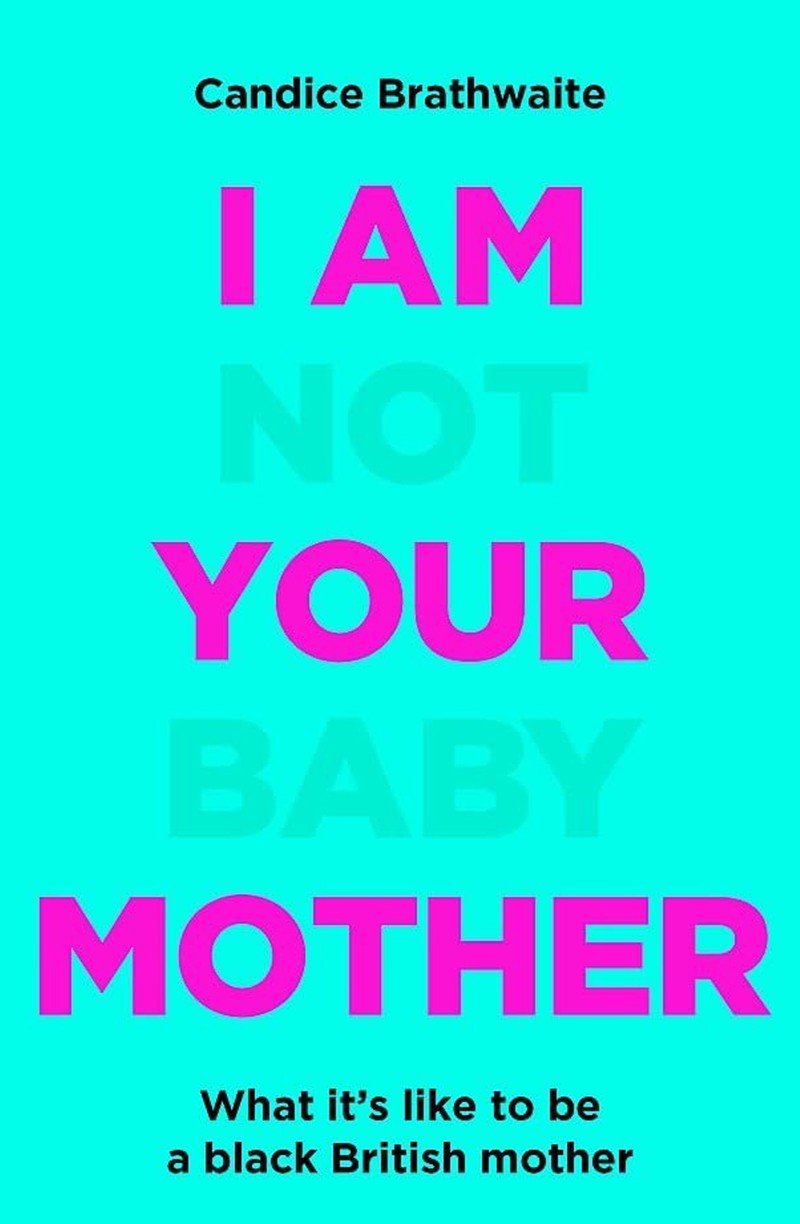
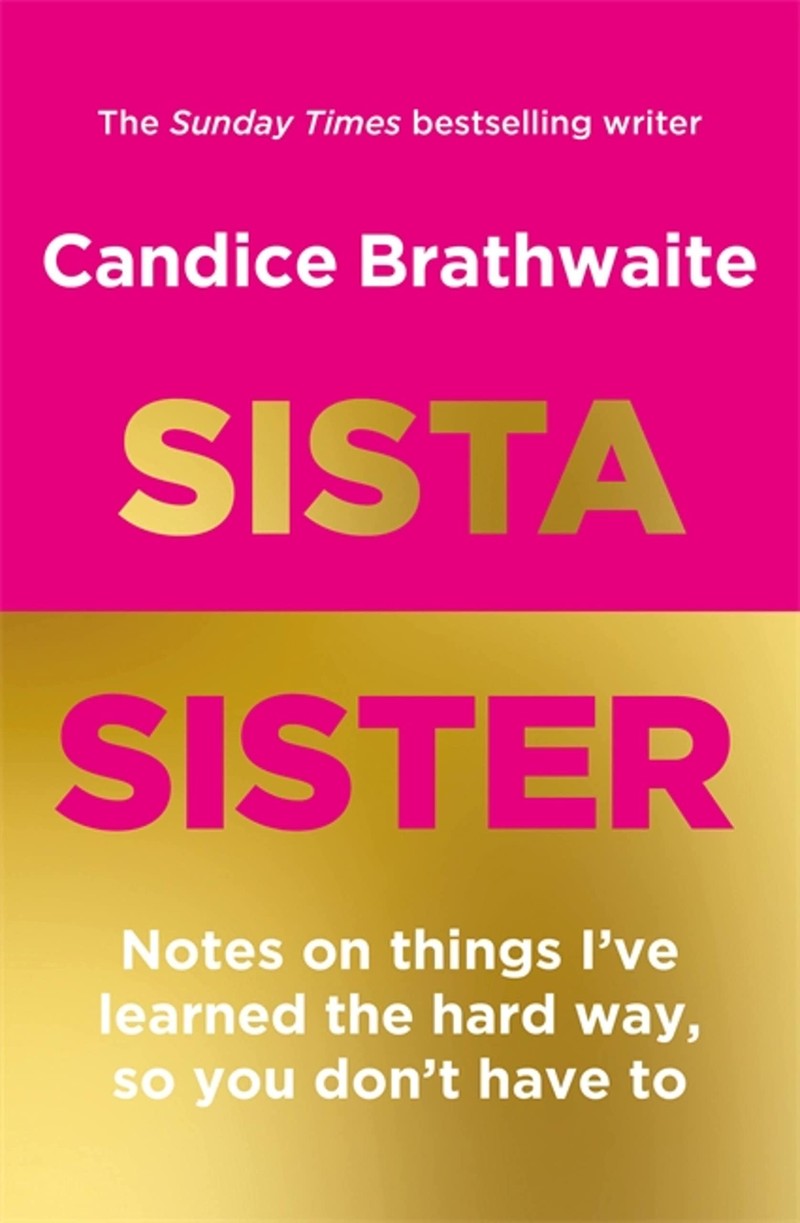
/https%3A%2F%2Fsheerluxe.com%2Fsites%2Fsheerluxe%2Ffiles%2Fwebsite-images%2F2025%2F04%2Fnew-parenting-background-image.jpg?itok=au3AjSlw)